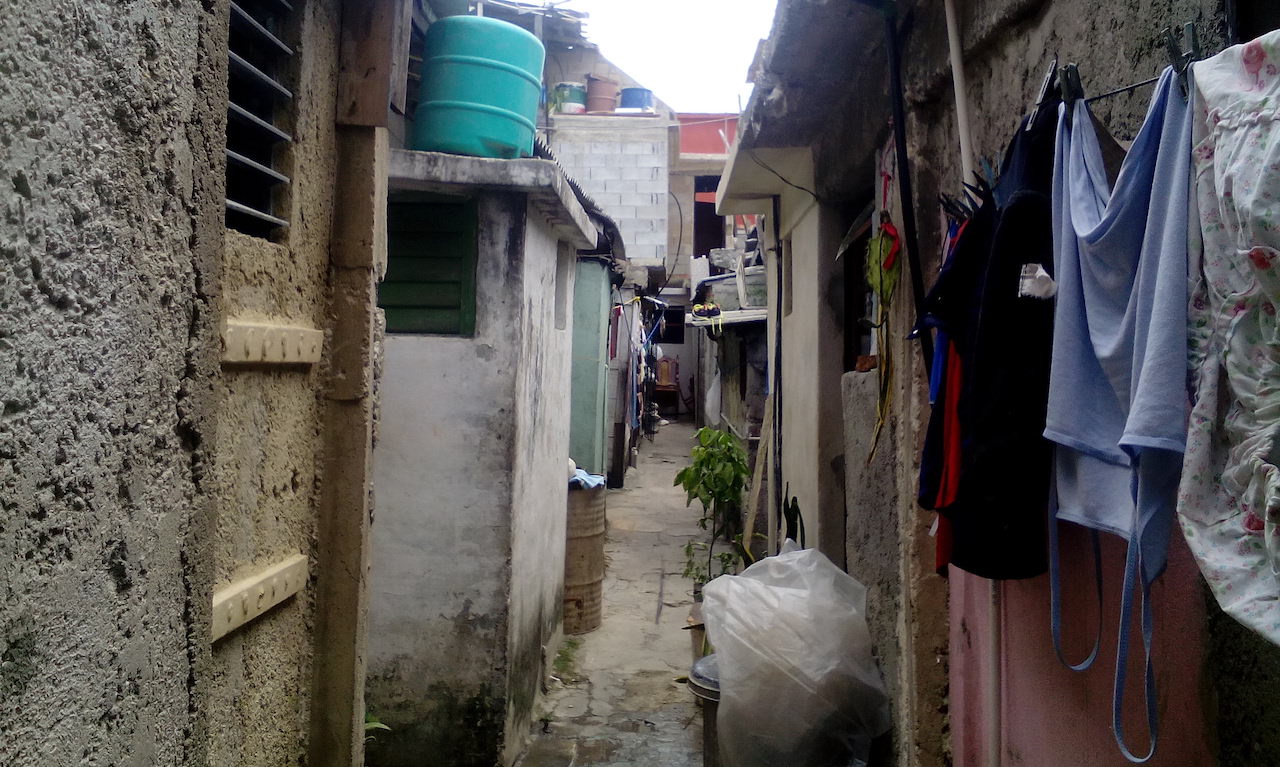Dianelis and Laura are two young students looking for a long-term rental they can afford with the remittances that their respective families can send them each month. Originally from Cienfuegos, they are studying for degrees at the University of Havana.
"Renting is an adventure fraught with obstacles for Cubans. Every day rents offering decent conditions are ever scarcer and more expensive. The option that remains is to give up your privacy and share with close friends, to minimize your expenses," said Laura, who works as a manicurist when she is not studying.
"I don't think rents are expensive, but rather everything in the country suddenly became more expensive, and we are all caught in the same vicious circle: those who rent out, and those who rent. The reality is the same for everyone," Dianelis said.
Both are in the third year of their studies. They pay $100 for a two-bedroom apartment in Nuevo Vedado. The price was $120, but they were recommended by friends of the landlady's family, and she agreed to 20 dollars less.
Havana writer Jorge Enrique, meanwhile, has been fortunate. For almost two years he has been renting in the Los Sitios neighborhood, but the price he pays is high: $100 per month.
"The space is quite small, only for one person, but it is independent, and for an indefinite period, which are always the most difficult rental conditions to find. Previously I was renting in three other places, for half of this price, but living with the owners, and only for four months," said Jorge Enrique, who has to "scrape" to pay the rent on time every month.
Despite the almost family-like relationship he has with his landlady, Jorge Enrique is looking for a bigger place to settle with partner and son.
"But finding a rental with two bedrooms, independent, for an indefinite period, with minimum conditions, and a rent under 100 dollars, is really difficult, if not impossible, today," he said.
The minimum conditions for a rental include a refrigerator. Not all rentals guarantee this amenity, which is usually the most important, all the respondents agreed.
"Without a refrigerator, your expenses double, because you can't store food, and can hardly plan your household budget," said Javier Castellanos, who rents a one-bedroom apartment in an El Cerro neighborhood along with his girlfriend.
"We pay $80 per month, but without a refrigerator. The only good thing is that it is indefinite. For two years we had been struggling, with rentals for three-month periods, at most. Now we can buy our things, to start a family."
Those who have to rent just temporarily are limited in terms of acquiring material goods. A move can cost between $30 and $40 for the truck, and $10 to $15 for the labor.
"If every three or six months you have to pay that money, plus the inconvenience of each move, you prefer not to have anything of your own, and to look for rentals that have some minimal amenities, which is practically impossible to find for less than $100," said Katiuska Llerena, a young nurse who lost her room in Central Habana five years ago due to a landslide.
In Katiuska's view, finding an indefinite rental is no guarantee either. As it is not a legal business (rental for Cubans), tenants are defenseless and unable to file suits; "not even for the theft of your belongings."
"The housing situation is worsening, and many prefer to go hungry and pay rent rather than resort to a shelter. Thus, the prices soar, and if someone else shows up tomorrow, able to pay 30 dollars more, then the landlady throws you out," Katiuska added, who has experienced this twice.
For her current place, in the Santo Suárez neighborhood, she pays $75 per month. It is a one-bedroom apartment, without a refrigerator, but for an indefinite period.
Cheap rentals of between 30 and 40 dollars, with security and good conditions, hardly exist. In general, they are in very remote neighborhoods, and do not offer guarantees against theft "in cases of problematic neighborhoods" and because of "the conditions of the property themselves," said Gloria Valdés, who identifies herself as someone who many Cubans looking for rentals, of any type, contact.
"They are almost always on lots with little privacy, and they are taken by people who are really desperate, or who come from the provinces to Havana, for various reasons."
Asked about the licenses to rent to Cubans for long terms, or indefinitely, Gloria said, coinciding with all those consulted, that she did not know a single person with permission to do this.
"The Government knows that it must turn a blind eye to this non-legal business. The housing situation is so tough, they can hardly go around supervising who rents to whom. The risk of renting to Cubans is a fine of 1,500 pesos, but they are rarely imposed. It’s a business that harms no one," Gloria concluded.
